#transgender in bangladesh
Text
youtube
#youtube#education#islamic video#islamic hadith#transgender#transgender in bangladesh#transgender in islam#trans women
0 notes
Text
What's something that the LGBT community should know but doesn't?
Stonewall was a tipping point in queer rights, not the entire movement.
There's more to LGBT history than just Stonewall and LGBT history from other countries should be brought up more
All these exclusionists and TERFs or whatever are extremely harmful to the community. I've seen so much bisexual exclusion and ace exclusion, and it weakens us.
The way we view, label and categorize gender and sexuality changes over time.
People with more obscure or less widely accepted identities aren't responsible for homophobia/transphobia.
Racism is a GIGANTIC problem in the LGBTQIA community.
Support for the rest of the community is at a record high, but support for trans rights is declining.
Despite our setbacks and long journey of rights issues, it is important to never stop believing in and talking about what is rightfully ours: freedom, sovereignty, autonomy, acceptance, accommodation, support, and appreciation
Online flag/label/slur discourse is fucking stupid, especially when homophobia plus transphobia is getting normalized as bigots get more vocal online in the name of "free speech".
People with vulva should still practice safe sex, as many STIs can still be transmitted between them.
Gatekeeping leads us nowhere
Don't play in the oppression Olympics.
The LGBTQI+ community should know that we are a global community
Fascists don’t deserve respect
#lgbtqia#lgbtq community#lgbt pride#lesbian#nonbinary#lgbtq#queer#sapphic#nonbinary lesbian#gay girls#transmasc#gender euphoria#transgender#transgirl#transisbeautiful#bangladesh#india#rwanda#saudi arabia#queer pride#queer nsft#queer community#queer artist#pride#lgbt#trans#lgbt nsft#lgbtqplus#lgbtqiia+#marriage equality
239 notes
·
View notes
Text

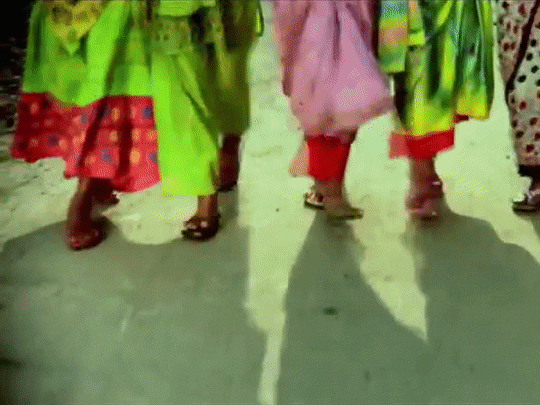







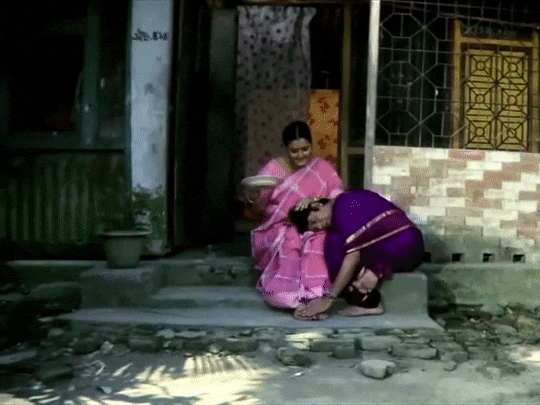
কমন জেন্ডার | COMMON GENDER (2012)
dir. Noman Robin
After being shunned by her middle-class family and sent to live in the slums as a child for being a hijra, Sushmita is raised in a community of others like her. As an adult, she and her new family make a living by performing at various wedding ceremonies. One day while at work, a Hindu boy named Sanjay takes a liking to her. The two begin seeing each other, and soon all the other hijras know of their relationship. But can Sanjay's family accept Sushmita for who she is?
(link in title)
#lgbt cinema#trans cinema#intersex cinema#common gender#common gender 2012#bangla cinema#bangladeshi cinema#lgbt#trans#intersex#transgender#bangladesh#dhallywood#lgbt movie#trans movies#intersex movies#bangladeshi movie#lgbt film#trans film#intersex film#bangladeshi film#lgbt media#trans media#intersex media#queer cinema#asian cinema#south asian cinema#Noman Robin#Dolly Zahur#Chitralekha Guha
32 notes
·
View notes
Text
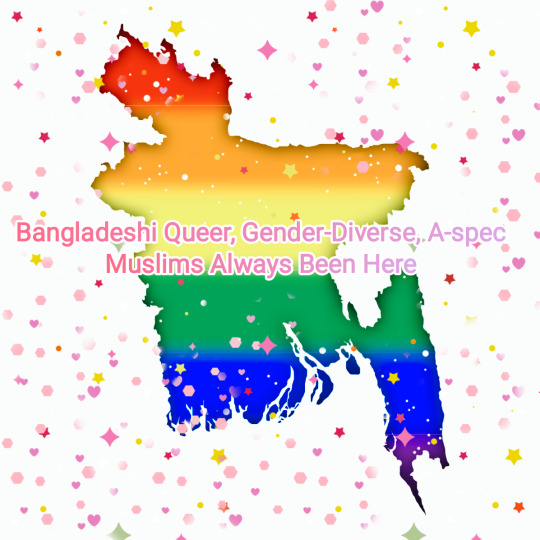
#bangladesh#bengali#queer#bangladeshi queer#hijra#gay#muslim#lgbtqia#rainbow#lgbt bd#wlw#mlm#sapphic#transgender#transsexual#somokami#somopremi#loveislove#bangladesh lgbtq
3 notes
·
View notes
Text
Trans women in Bangladesh must beg to live, but face arrest for begging.
2 notes
·
View notes
Text
Bangladeshi Femboy
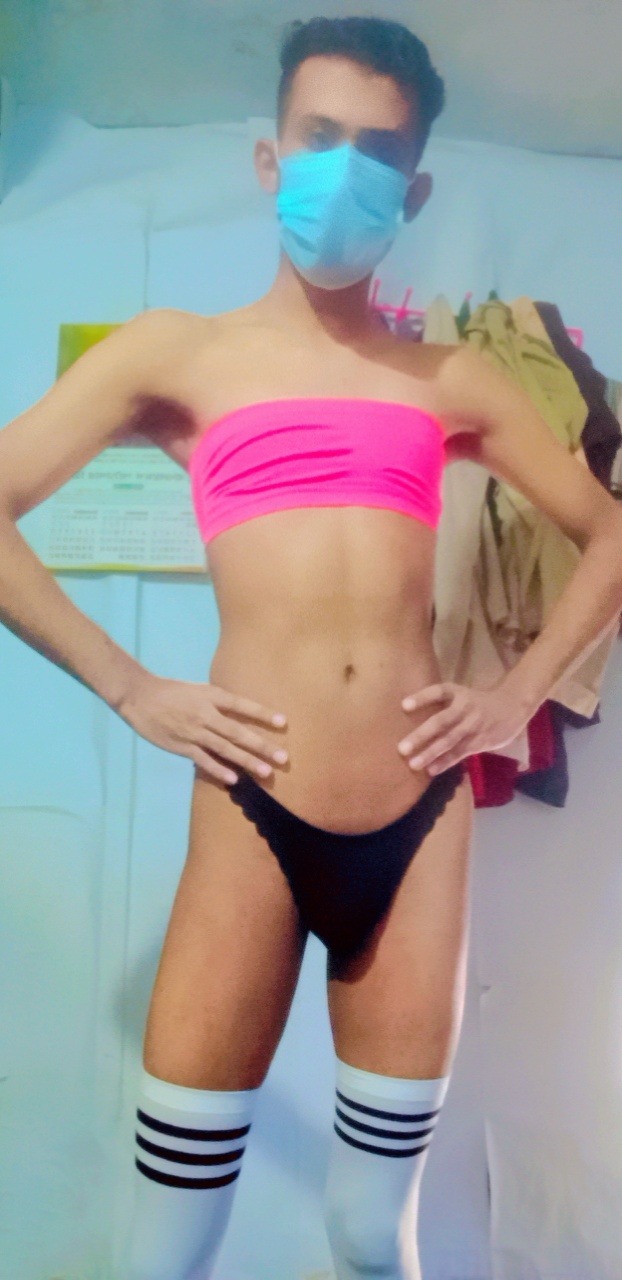
3 notes
·
View notes
Text
A world without trans people has never existed and it never will.

Seriously just search (Trans History).
Here are some examples:
"Sumerian and Akkadian texts from 4,500 years ago document priests known as gala who may have been transgender. In Ancient Greece, Phrygia, and Rome, there were galli priests that some scholars believe to have been trans women.
Roman emperor Elagabalus (d. 222 AD) preferred to be called a lady (rather than a lord) and sought sex reassignment surgery, and in the modern day has been seen as a trans figure.
Hijras on the Indian subcontinent and kathoeys in Thailand have formed trans-feminine third gender social and spiritual communities since ancient times, with their presence documented for thousands of years in texts which also mention trans male figures. Today, at least half a million hijras live in India and another half million in Bangladesh, legally recognized as a third gender, and many trans people are accepted in Thailand.
In Arabia, khanith today (like earlier mukhannathun) fulfill a third gender role attested since the AD 600s.
In Africa, many societies have traditional roles for trans women and trans men, some of which survive in the modern era.
In the Americas prior to European colonization, as well as in some contemporary North American Indigenous cultures, there are social and ceremonial roles for third gender people, or those whose gender expression transforms, such as the Navajo nádleehi or the Zuni lhamana."
In conclusion. Being trans is not a fad and it isn't going anywhere just because some crazy religious nut jobs say we don't fit into their abusive hateful world views. We are here and always will be. So get used to it. 👋😘
#lgbtq#trans#transmasc#trans masc#transfem#transgender#trans woman#transgirl#lgbtqia#trans rights are human rights#trans rights
3K notes
·
View notes
Text
In addition to my Monkey Man post from earlier, the always kind & sweet Aparna Verma (author of The Phoenix King, check it out) asked that I do a thread on Hijras, & more of the history around them, South Asia, mythology (because that's my thing), & the positive inclusion of them in Monkey Man which I brought up in my gushing review.
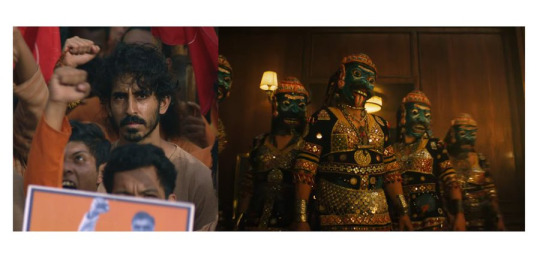
Hijra: They are the transgender, eunuch, or intersex people in India who are officially recognized as the third sex throughout most countries in the Indian subcontinent. The trans community and history in India goes back a long way as being documented and officially recognized - far back as 12th century under the Delhi Sultanate in government records, and further back in our stories in Hinduism. The word itself is a Hindi word that's been roughly translated into English as "eunuch" commonly but it's not exactly accurate.
Hijras have been considered the third sex back in our ancient stories, and by 2014 got official recognition to identify as the third gender (neither male or female) legally. Pakistan, Nepal, Bangladesh, and India have accepted: eunuch, trans, intersex people & granted them the proper identification options on passports and other government official documents.
But let's get into some of the history surrounding the Hijra community (which for the longest time has been nomadic, and a part of India's long, rich, and sometimes, sadly, troubled history of nomadic tribes/people who have suffered a lot over the ages. Hijras and intersex people are mentioned as far back as in the Kama Sutra, as well as in the early writings of Manu Smriti in the 1st century CE (Common Era), specifically said that a third sex can exist if possessing equal male and female seed.
This concept of balancing male/female energies, seed, and halves is seen in two places in South Asian mythos/culture and connected to the Hijra history.
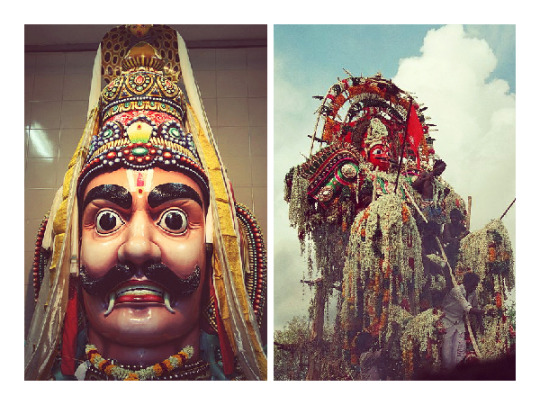
First, we have Aravan/Iravan (romanized) - who is also the patron deity of the transgender community. He is most commonly seen as a minor/village deity and is depicted in the Indian epic Mahabharata. Aravan is portrayed as having a heroic in the story and his self-sacrifice to the goddess Kali earns him a boon.
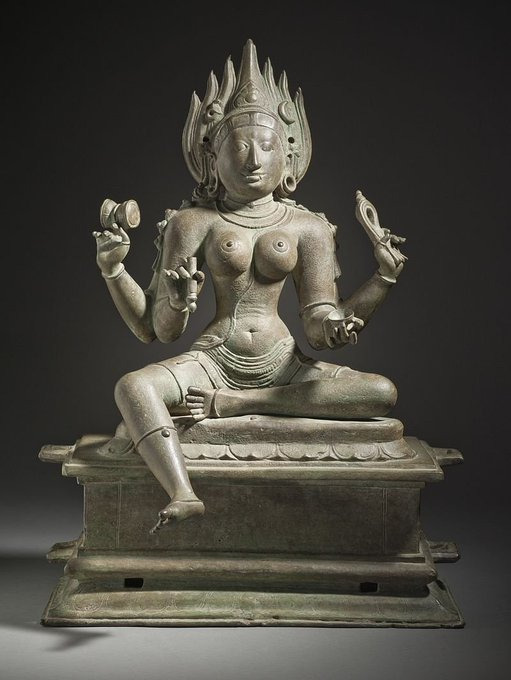
He requests to be married before his death. But because he is doomed to die so shortly after marriage, no one wants to marry him.
No one except Krishna, who adopts his female form Mohini (one of the legendary temptresses in mythology I've written about before) and marries him. It is through this union of male, and male presenting as female in the female form of Mohini that the seed of the Hijras is said to begun, and why the transgender community often worships Aravan and, another name for the community is Aravani - of/from Aravan.
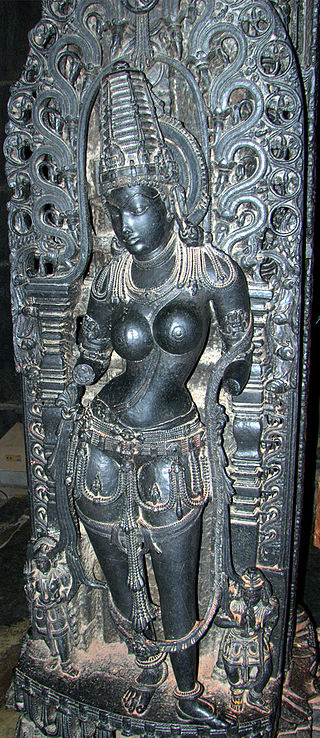
But that's not the only place where a gender non conforming divine representation can be seen. Ardhanarishvara is the half female form of lord Shiva, the destroyer god.
Shiva combines with his consort Parvarti and creates a form that represents the balancing/union between male/female energies and physically as a perfectly split down the middle half-male half-female being. This duality in nature has long been part of South Asian culture, spiritual and philosophical beliefs, and it must be noted the sexuality/gender has often been displayed as fluid in South Asian epics and the stories. It's nothing new.

Many celestial or cosmic level beings have expressed this, and defied modern western limiting beliefs on the ideas of these themes/possibilities/forms of existence.
Ardhanarishvara signifies "totality that lies beyond duality", "bi-unity of male and female in God" and "the bisexuality and therefore the non-duality" of the Supreme Being.
Back to the Hijra community.
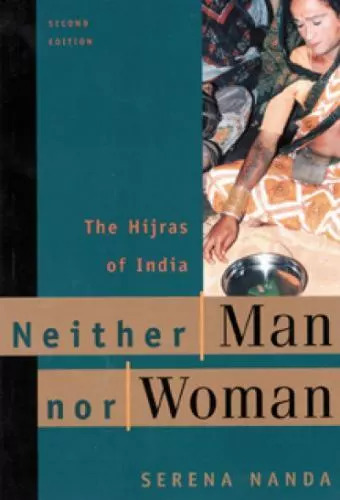
They have a complex and long history. Throughout time, and as commented on in the movie, Monkey Man, the Hijra community has faced ostracization, but also been incorporated into mainstream society there. During the time of the Dehli Sultanate and then later the Mughal Empire, Hijras actually served in the military and as military commanders in some records, they were also servants for wealthy households, manual laborers, political guardians, and it was seen as wise to put women under the protection of Hijras -- they often specifically served as the bodyguards and overseers of harems. A princess might be appointed a Hijra warrior to guard her.
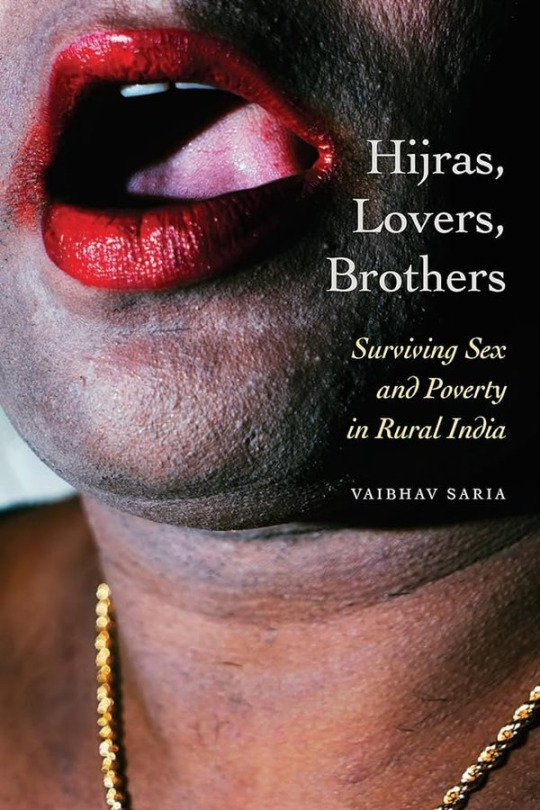
But by the time of British colonialism, anti-Hijra laws began to come in place folded into laws against the many nomadic tribes of India (also shown in part in Monkey Man with Kid (portrayed by Dev Patel) and his family, who are possibly
one of those nomadic tribes that participated in early theater - sadly by caste often treated horribly and relegated to only the performing arts to make money (this is a guess based on the village play they were performing as no other details were given about his family).
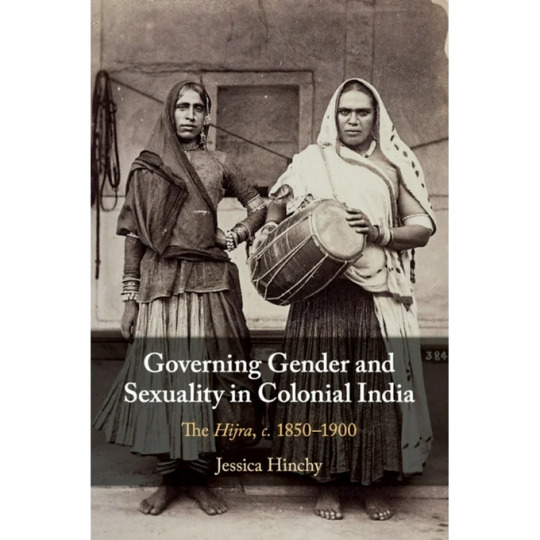
Hijras were criminalized in 1861 by the Indian Penal Code enforced by the British and were labeled specifically as "The Hijra Problem" -- leading to an anti-Hijra campaign across the subcontinent with following laws being enacted: punishing the practices of the Hijra community, and outlawing castration (something many Hijra did to themselves). Though, it should be noted many of the laws were rarely enforced by local Indian officials/officers. But, the British made a point to further the laws against them by later adding the Criminal Tribes Act in 1871, which targeted the Hijra community along with the other nomadic Indian tribes - it subjected them to registration, tracking/monitoring, stripping them of children, and their ability to sequester themselves in their nomadic lifestyle away from the British Colonial Rule.
Today, things have changed and Hijras are being seen once again in a more positive light (though not always and this is something Monkey Man balances by what's happened to the community in a few scenes, and the heroic return/scene with Dev and his warriors). All-hijra communities exist and sort of mirror the western concept of "found families" where they are safe haven/welcoming place trans folks and those identifying as intersex.
These communities also have their own secret language known as Hijra Farsi, which is loosely based on Hindi, but consists of a unique vocabulary of at least 1,000 words.
As noted above, in 2014, the trans community received more legal rights.
Specifically: In April 2014, Justice K. S. Radhakrishnan declared transgender to be the third gender in Indian law in National Legal Services Authority v. Union of India.
Hijras, Eunuchs, apart from binary gender, be treated as "third gender" for the purpose of safeguarding their rights under Part III of our Constitution and the laws made by the Parliament and the State Legislature. Transgender persons' right to decide their self-identified gender is also upheld and the Centre and State Governments are directed to grant legal recognition of their gender identity such as male, female or as third gender.
I've included some screenshots of (some, not all, and certainly not the only/definitive reads) books people can check out about SOME of the history. Not all again. This goes back ages and even our celestial beings/creatures have/do display gender non conforming ways.
There are also films that touch on Hijra history and life. But in regards to Monkey Man, which is what started this thread particularly and being asked to comment - it is a film that positively portrayed India's third sex and normalized it in its depiction. Kid the protagonist encounters a found family of Hijras at one point in the story (no spoilers for plot) and his interactions/acceptance, living with them is just normal. There's no explaining, justifying, anything to/for the audience. It simply is. And, it's a beautiful arc of the story of Kid finding himself in their care/company.
#hijra#trans representation#monkey man#dev patel#transgender#trans rights#trans rights are human rights#third sex#indian history#indian culture#colonialism#imperialism#south Asian mythos#South Asian myths#Aravan#Iravan#Mahabharata#hindu mythology#hindu gods#kali goddess#krishna#hindu mythology art#Ardhanarishvara#Shiva#Parvarti#sexuality#gender fluid#fluid sexuality#trans community#transgender rights
334 notes
·
View notes
Text
“They can try to ban us. They can try to get rid of our health care. They can try to deny us housing, credit, and public accommodations. They can try to shame us. They can try all they want to erase us, but at some point, they will realize the trans community is never going away.
Trans people are everywhere.
Every country, every race, every ethnicity, every religion, every socioeconomic level, every period of human history — we are everywhere. We are natural. You can’t rid of what’s natural. I think they know that, and it terrifies them.” —> Charlotte Clymer
Happy International Transgender Day of Visibility
#transgender#trans community#transfem#trans#trans people#trans man#bangladesh#india#pakistan#pride#pride parade#lesbian pride#pride month#gay pride#mtf pride#bisexual pride#queer#lgbtq#queer community#lgbtqia#lgbtqplus#queer artwork#genderqueer#gender queer#queer love
93 notes
·
View notes
Text
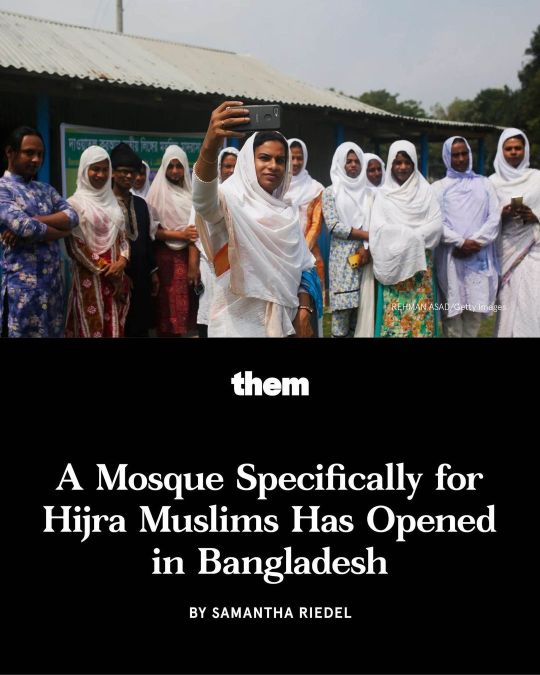
[x]
Bangladesh’s first mosque specifically for hijra Muslims has officially opened its doors, as members of the legally recognized “third gender” and transgender communities seek refuge from abuse and discrimination.
The mosque consists of a single-room building with a tin roof, paid for and built by hijras near the city of Mymensingh on government-donated land after hijra worshippers were expelled from the local community. The land already contains a graveyard and one plot, belonging to a hijra woman who was denied burial at a local mosque last year.
#things like this make me so happy bc u know what EVERYONE deserves to worship!!!!!!!!!!!!#hijra#south asia#islam#bangladesh#lgbt
236 notes
·
View notes
Text
TIGER HRT - MONTH -6 - THE CONSULTATION
The specialest of special thanks to @ayviedoesthings for creating the original Dragon HRT story, and a big shoutout as well to @kaylasartwork, @welldrawnfish, @nyxisart, and @deadeyedfae for their takes on the concept! Every one of you is inspirational, and your work gives me so much second-hand gender euphoria!
Next
---
"Miss Alexis, please come in."
I look around as I walk inside. Between the doctor being a balding middle-aged man and the office looking like any generic doctor's office, I'm honestly a little disappointed. I was hoping the infamous source of therian HRT would be a little more… I don't know. Exotic? Unique? I was half expecting the walls to have before and after photographs of clients, but I suppose when it comes down to it, this is a serious medical facility, not a beauty salon. I walk up to the desk and sit down in the chair.
"Now I understand you wish to be a… a tiger?"
I'm unable to suppress my euphoria at the idea, and I start grinning and nodding. "A white tiger! I haven't changed my fursona since I got one, it's about time I start embodying it!"
"Indeed… And I see on your medical history that you are transgender." He mutters under his breath, "Just like all the others…"
I give a little smirk. 'All the others' are the reason I'm here. If this guy is handing out meds that can turn people into dragons or fish or bats, then a tiger should be easy, right? It's a mammal, and not much bigger than a human, relatively speaking. I had even given some thought to the rumoured "Fifteen Minute Shortcut", but when it comes down to it, even if I did have the ungodly pain tolerance to withstand such a rapid transformation of my bone structure and musculature, I… don't really want to do it quickly. Mundane HRT has already been such an absolute gift in terms of euphoria from noticing the slow and gradual changes, I want to keep that up. I want to notice the little things.
"Now I'm afraid there are some requirements to be settled first…"
Oh boy. Here comes the bureaucratic bullshit. Everything that's been put in place to make sure Our Children don't Make A Terrible Mistake. When it comes down to it, bodily autonomy only counts when you're not one of the weirdos. The instant you decide to be capital-d Different, people start falling over themselves trying to talk you out of it.
"First of all, I see that you have been taking human hormone therapy for a little over six months. We do require a full year of human treatment before beginning therian treatments, and I'm afraid that is fully non-negotiable. There are matters of biology that require the body to be a certain degree of… receptive."
I was afraid of this, but at least it's not a deal-killer. Another half-year is bearable, even if I am going to be shaking with anticipation the entire time.
"I also see you have letters from a practicing physician and a social worker, but we do require a second psychologist to be involved in the process."
Okay. Absolute horseshit, but not impossible. All I've got to do is find another social worker or psychologist. And pay them for several months of sessions. And hope they don't decide I'm crazy for wanting to throw away my humanity. I can feel my expression souring…
"It's also required to live as your desired species for at least a year before beginning the process."
"What." I'm leaning forward and glaring at the doctor before I fully realize it. "And how exactly am I supposed to do that, without the… the requisite biology, or the inborn instincts, or the… the habitat!" I let out a frustrated growl. "Am I supposed to fly off to India or Bangladesh or somewhere, and start camping out in the wilderness??"
"Miss Alexis, please, I'm afraid these are… are the requirements set forth by the guidelines of -"
"Guidelines!" I slam a palm down on the desk between us, before letting out a frustrated breath. "Just that… Guidelines. You know, and I know, that a lot of people have come to you already, with a lot more… exotic requests. Flying animals? Aquatic animals? A fucking DRAGON??"
The doctor seems taken aback, maybe he didn't expect this level of resistance.
"What is even the natural habitat of a dragon anyway? Or the diet? Or the behaviours in the wild?? It's a mythical creature for gods' sakes, there's no firm evidence they even existed!!" I stare at him, unblinkingly, with what I dearly hope is a predatory glare. "But I do get it, though. You have to be absolutely sure I won't regret it. Liability, or whatever. …Maybe we just need to know how hard I can BITE."
Something changes in his expression. …Malice? No, not quite. A sort of… satisfaction, maybe.
It was a test. He wanted to know whether I'd just roll over and accept the impossibility of my quest, or whether I was prepared to fight for it.
Joke's on him, just getting human HRT was such a godsdamned hassle, I already know how to fight.
He adjusts his glasses. "Perhaps there is something I can do for you… Let me get you some forms."
41 notes
·
View notes
Text
Shahnur Islam also noted other recent achievements by trans people in Bangladesh, including the election last January of Nazrul Islam, a transgender woman, as the chairman of Trilochanpur Union of Kaliganj in Jhenaidah district.
If they are allowed to compete on a level playing field, transgender women can lead and can play an important role in the development of Bangladesh, he said.
445 notes
·
View notes
Text
Muslim world's only mosque with Rainbow
I never imagine that there could be a mosque or masjid with a rainbow, especially in a conservative muslim-majority country. It can be a momentum for LGBTQIA+ muslims of Bangladeshi backgrounds to embrace the diversity of Allah. When I came know about this mosque, I was pretty shocked. It could be the only mosque in entire muslim world that has a vibrant rainbow minaret.
This mosque's name is Chawkbazar Shahi Jame Masjid, located in Chawkbazar, Puran-Dhaka. It was built by Emperor Shaista Khan. It is one of the oldest & largest mosques in Bangladesh. Guys, let me remind you of one thing: it is not a “LGBTQ+ friendly mosque." The mosque's rainbow minaret has also become a tourist attraction. It's ironic that the Bengali people living in this suburb have never had objections regarding the mosque's rainbow minaret. I think they are/were unaware of the symbolism of the rainbow, which stands for solidarity among queer and trans folks. BTW, there are some LGBTQI+ and hijra groups in the Puran-Dhaka suburb.
Homosexuality is a punishable offense in Bangladesh, under the British-inherited Penal Code Section 377. Hijras & kothis are visible queer individuals in South Asia. The South Asian term "hijra" refers to multiple genders, such as AMAB transgender individuals, transvestites, masculine women (intersex type), AMAB non-binary individuals, & intersex folks. The term doesn't include trans male. The term "kothi" specifically refers to transvestites, bottom gays, and effeminate males. Hijra community has existed since the early 10th century. In 2013, Bangladesh officially recognized hijras as a third gender. However, this subcultural gender minority still faces social stigma and discrimination.
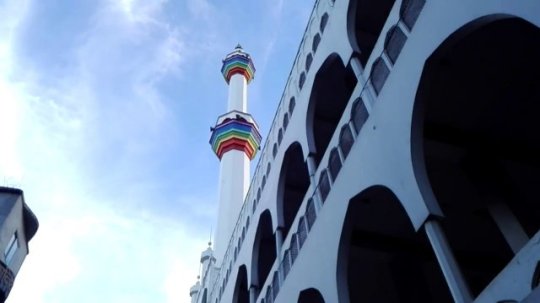
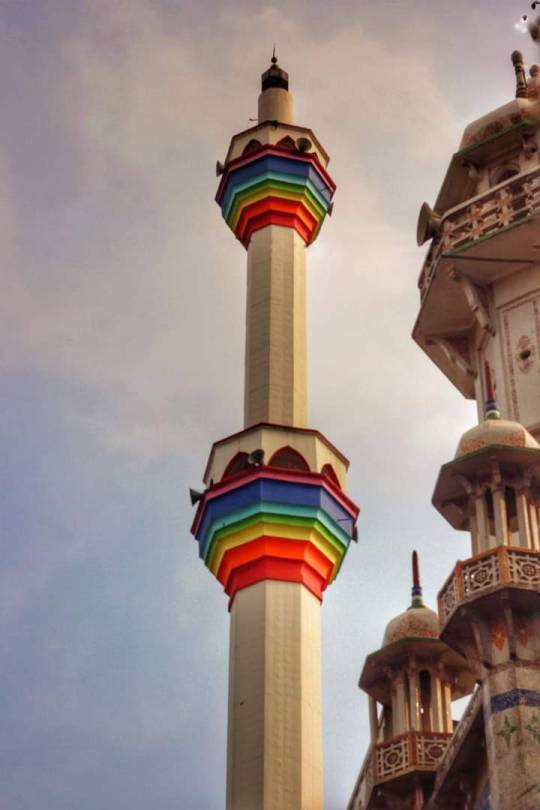

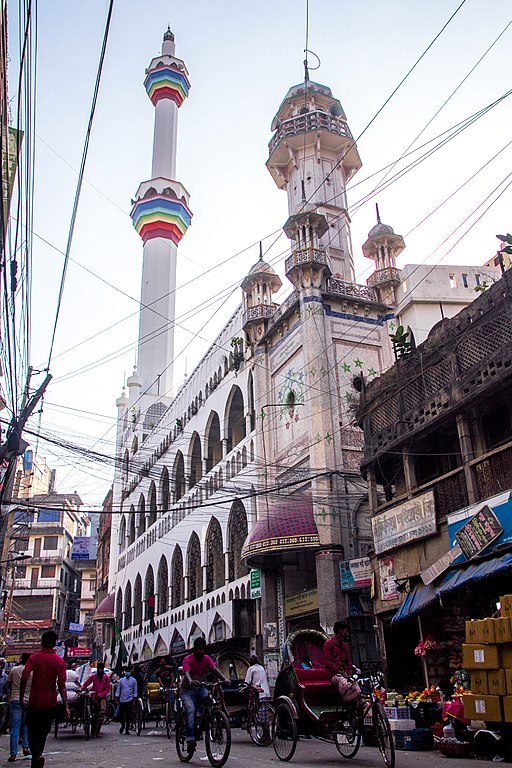

#rainbow#rainbow mosque#queer muslim#queering islam#queering the map#diversity#loveislove#god loves all#allahlovesequality#allahlovesus#Bangladesh
51 notes
·
View notes
Text
Queer Glossary of Muslim/Islamic World:
This is a list of gender & sexuality related terms, used in Muslim/Islamic World.
Mithli/Mithly - postmodern Arabic term for queer folks
Mithliya - feminine form word “Mithli”, refers to lesbians, sapphics, queer women
Mu’khanath/Mukhannas/Mukhannath/Mukhannathun/Mukhannathin - archaic Arabic term for gender variants, trans woman, trans femme, individuals of non-normative gender and/or sexuality
Mukhannith - classical Arabic term for transsexual woman
Mutarajilat/Mutarajjil/Mutarajila - archaic Arabic term for butch,trans man, trans-masculine. It is masculine equivalent of word “Mukhannath”
Mustargil/Mustarjil/Mustarajil/Mustarajilla/Mustarajjila- vernacular term for trans male/trans-masculine folks in Marsh Arab
Mabun/Maabun - archaic Arabic term for an eunuch homosexual, passive homosexual in Medieval Islamic Arab.
Khanith/Khaneeth/Xanith/Makhanith - vernacular term for transgender femme, gender non-confirming, queer in Arabian Peninsula & Gulf countries. The Khanith is also a third gender/sex community of Arabian peninsula.
Khuntha/Khunsha - archaic Arabic term used to describe intersex & ambiguous gender individuals in Muslim World.
Khuntha Mushkil - term for non-binary & gender non-confirming intersex individuals.
Khasi/Khasee - archaic term for eunuchs in Arabic/MENA Islamic empires
Khusra/Khusray/Khusaray/Khusara - Pejorative word for eunuch transgender, gender non-confirming individuals in Pakistan & Northernmost India. The word derived from Punjabi
Murat/Muraat/Morat/Moorat - vernacular term for transgender, eunuch, gender-diverse folks in Pakistan. It is also used in some parts of Afghanistan.The word Murat is itself a portmanteau of Mard (meaning man) and Aurat (meaning woman)
Hijra/Hijre/Hijjara/Hijarah/Hijada – all-encompassing term for gender & sexual diverse folks in the Indian subcontinent. The term includes trans femme, mtf transsexual, masculine woman, effeminate gay man, cisgendered drag queen, androgyne, transvestite, queer, eunuch, non-binary & intersex individual
Khawaal - term for MTF transvestite dancers,Effeminates in Pre-mordern Egypt.
Köçek - archaic Turkish term for effeminate male, androgynous male gender fluid dancers in Ottoman society. The term also refers to feminine boys regardless of their sexual orientation. “Cengi” is female counterpart of Köçek.
Khawaja sara/Khwaja sara/Khwaja sira/Khawajasira/Khwaja sera/Khwaja sarayi/Khaja sarah - Persian archaic term used to describe a range of gender identities, including trans femme, gender fluid, non-binary, effeminate (mukhannas), eunuch, trans-masculine, and trans-feminine individuals in South Asia. It goes beyond being just a gender or sexual identity; it is also associated with gender spirituality or Sufi tariqah. This term was historically used to designate trans and non-binary individuals in Medieval Muslim empires. Nowadays, the term khawaja sara/khwajasara has become a subset of Hijra
Kothi - pejorative slang term for effeminate men, gay transvestites, drag queen, passive homosexuals in Indian subcontinent. In pakistan, kothis are referred as “Zenana”.
Panthi - slang term for dominant, hard, masculine gay & bisexual male in Bangladesh, Pakistan & India. This term derived from to Hijra Farsi or Ulti Bhasha
Parikh/Paarikh - slang term refers to boyfriend & husband in Bangladesh. This word is mostly used among LGBTQ+ population
Dohpartaa or Dohpartah - informal, slang term for bisexual in Bangladesh & West Bengal. The word derived from the Hijra Farsi or Ulti language.
Mamsuh - Arabic term for intersex person, who is agender or genderless.
Hum Jins, Hum jinsi, Ham-jense, Ham-jens – homosexual in Urdu, Persian, Tajik language
Ham-jins bâz/Ham-jens bâz – a derogatory term for gays in Farsi-speaking communities.
Ham-jens-garâ - slurr for homosexual in Farsi
Ham-jins garo - pejorative term for homosexuals in Tajikistan
Do jens garâ/Doh jense garâ - term for bisexual in Farsi
Mak Nyah - term for transgender woman, MTF transsexual in Malaysia. The term “Mak Nyah” is widely used among trans women, mukhannath/ trans-feminine folks. The term was first coined in late 1980s.
Pak Nyah - informal,vernacular term for trans men in Malaysia.
Waria - vernacular term for Transgender & trans woman in Indonesia.Warias are considered as third gender in Indonesia.
Priawan - vernacular term for trans-masculine in Indonesia.
Bissu - a term used to describe non-binary or two spirit identity in Bugie Tribe of Indonesia
Boyah/Boyat - a term used in persian gulf states to describe masculine women,butch, & AFAB gender non-confirming
Burnesha - vernacular term used to describe trans-masculine,butch in Ottoman empire of balkan & Albania.
Chokri/Chukri - term for drag queens, transvestites, transfeminine folks who are associated with “Alcap” folk song & sufi devotional music. This cross-gender cultural phenomenon can be found in Bangladesh & North-west Bengal. Chukri artists may identify themselves as straight, bisexual, gay, transsexual. Muslim Chukris are devotee of sufi saint Madar Pir/Madari Pir.
Zenana/Jenanah - vernacular term for effeminate male,MTF transvestite in Bangladesh,Pakistan,Northern India.The term Zenana derived from Urdu or Farsi, which means feminine.
Bachaa posh - pejorative term for FTM crossdresser, butch in Afghani dialect
Bacha Bareesh - pejorative vernacular term for effeminate boy, passive homosexual,transgender folks in Afghanistan. Bacha Bareesh are effeminate boys,MTF drag queens who take part in Bacha bazi.
Gej – non-derogatory term for gays in Balkan regions. It is used in Bosnia & Herzegovina, Albania, Kosovo, Serbia, Macedonia, Romania.
Dygjinishëm - Albanian term for bisexual
84 notes
·
View notes
Text
12 notes
·
View notes
Text
People often say that LGBTQIA+ people doesn't exists in Muslim/Islamic World. Nowdays many muslims argued that LGBTQI+ rights are contrary to their traditional beliefs, homosexuality shouldn't be decriminalized in their native countries,because it goes against their moral values,cultural norms & social mores,[...].
But previous Islamic history & muslim traditions had wide range of acceptance of sexual & gender diversity.In those days Muslim communities weren't so bigotted, heterosexist,homophobic/transphobic, heteropatriarchal.Colonialism,communism,dictatorship,islamist regime justified the prejudices against queer folks in Muslim world, not Islam itself.
In 1854, Ottoman empire legalised consensual homosexuality in parts of Middle East,North Africa,Eastern Europe & West Asia.Notably Mughal,Mamluk,Khilji,Sayyid, Pathan,Lodi,Abbasid,Safavid,Qajar,Ottoman empire gave privileges to gender variants and eunuchs.Even it is also said that Aghawas (a designation for trans feminine, effeminate,agender/eunuch & intersex) were served as guardian of Prophet Muhammad (PBUH)'s mosque & tomb.There had been numerous homoerotic paintings & same sex romantic poetries in medieval islamic era.In pre-modern muslim societies ghazals (sufi spiritual song) has direct references with queerness.In some sufi traditions cross-dressing, gender fluidity was considered as sacred.
Since 18th & 19th century almost all muslim countries were colonized or being influenced by European Orthodox Christians.Europeans pushed their moral codes,heteropatriarchal system & gender roles upon muslim communities.But western colonialism was unable to erase queerness & love from asia.In Pakistan,Bangladesh,India & some parts of Afghanistan, Hijras (designation term for trans feminine,trans woman,gender diverse,intersex) are still exists.Hijras has recognition of third gender in Pakistan,India & Bangladesh.They have some civil rights in those countries mentioned.But Transgender people's livelihood in Afghanistan is very worst.Some Afghan trans people's lifestyles are very similar to Hijra/Khawaja Sara subculture. In central-asian muslim cultures gender vice-versa or variance are not uncommon.Bacha bazi or Bacha-bozi is practice where adult men get sexual services from young crossdressers and effeminates.
Waria, another transgender muslim community can be found in Indonesia.Waria transgenders has very limited rights comparing to Hijras.In South Sulawesi, Indonesia Bugis (a muslim tribe) recognized 5 genders: Oroané(masculine men), makkunrai (feminine women), Calalai (trans-masculine or masculine women), Calabai (trans-feminine or feminine male), Bissu (androgynous or non-binary).The classification of the calabai,calalai, & bissu as third genders is disputed.These roles can also be seen as fundamental occupational and spiritual callings, which are not as directly involved in designations such as male and female.In pre-Islamic culture, Bissu were seen as intermediaries between the people and the gods.The Bissu are closely associated with the female yet androgynous moon goddess, as her spiritual offspring.Up until the 1940s, the Bissu were still central to keeping ancient palace rites alive, including coronations of kings & queens. Historically, Bissu have played an important role in other ceremonies as well,particularly in weddings and childbirth events.However today Bissu & Waria faces marginalization in their homeland due to rise of Political Islamism & Islamic Extremism .
Here is a list of Muslim/Islamic nations where homosexuality is not a criminal offense (technically):
Albania - Legal since Ottoman period.
Bosnia & Herzegovina - Legal since Ottoman period.
Kosovo - Legal since Ottoman period.
Azerbaijan - Legal since 1918 or 2000 (not sure).But state often arrests LGBTQ community members.
Northern Cyprus - Legal since Ottoman period,legal in modern northern cyprus since 2015.
Turkey - Legal since Ottoman period, legal in modern turkey since 1923.
Jordan - Legal since Ottoman period,legal in hashemite kingdom of jordan since 1951.
Bahrain - Legal since Ottoman period.
West Bank (Palestine) - Female homosexuality always been legal,male homosexuality is legal since 1951.
Gaza (Palestine) -Female homosexuality always been legal.
Lebanon - Legal since Ottoman period, legal in modern lebanon since 2018 (however the legal status of homosexuality is vogue)
Kazakhstan - Legal since 1997 (de facto),nationwide legal since 1998 (de jure).
Kyrgyzstan - Legal since 1998.
Egypt - Legal since Ottoman period.Although private consensual homosexuality is not criminalized by domestic laws.Commercial & adult consensual homosexuality is de-facto illegal since 1961.
Kuwait -Female homosexuality always been legal.
UAE - There's no explicit federal law against homosexuality.But commercial & non-commercial homosexuality is de-facto illegal.
Burkina Faso - always legal
Djibouti - always legal
Mali - legal since 1961
Mayotte - always legal
Niger - always legal
Guinea Bissau - legal since 1993.
Sierra Leone -Female homosexuality always been legal.
Uzbekistan - Female homosexuality always been legal in federal law.
Turkmenistan - Female homosexuality always been legal in federal law.
Tajikistan - legal since 1998.
Indonesia - Homosexuality never been a criminal offense until 2022.LGBTQI+ people often faced persecution by state & harassment.In 2022, Indonesian parliament passed a bill that outlaws all types of sexual relationships outside the traditional marriage.
Here is a list of Muslim/Islamic nations,where transgender & gender diverse people has rights:
Iran - Transgender individuals were officially recognized by the government, under condition of undergoing sex reassignment surgery, with some financial assistance being provided by the govt. for the costs of surgery, and with a change of sex marker on birth certificates available post-surgery since early 1980s. However, substantial legal and societal barriers still exist in Iran. Trans individuals who do not undergo surgery have no legal recognition and those that do are first submitted to a long and invasive process (including virginity tests, parental approval, psychological counseling that reinforces feelings of shame & inspection by the Family Court).
Bosnia and Herzegovina - Trans people may change their legal gender in Bosnia & Herzegovina after a sex reassignment surgery & other medical treatments.
Pakistan - Pakistan recognized Hijras as third gender in 2009. In 2018 Pakistan's parliament passed “The Transgender Persons (Protection of Rights) Act” which provides fundamental rights in health, education, government and security.
Lebanon - In late 1990s Lebanon allow sex reassignment surgery.In 2016 Lebanon court legally recognized a trans man as man.
Turkey - Transgender individuals were allowed to change their gender since 1988.However later Turkey adopted harsh policies for transgenders,required many pre–requisutes in order to be able to receive gender-affirming surgery. Transgender persons had to ask & be granted permission for the surgery,be at least 18 years of age,unmarried, & sterilized in order to receive gender-affirming surgery.
Jordan - Since 2014 jordan allow trans people to change their gender after a sex change operation.
Bahrain -Since 2008 Bahrain allow trans people to change their gender after a sex change operation.
Bangladesh - since 2013 Bangladesh recognized hijras & eunuchs as third gender.In 1975 Dr. Hosne Ara Begum became the first transsexual woman to be recognised as woman in Bangladesh.
Indonesia - Indonesia allows sex change operation for Warias & give limited rights for transgenders.
Kazakhstan - Since 2003, trans people allowed to change legal gender following sex change surgery,medical examinations, & sterilisation.
Kyrgyzstan -Transgender people allowed to change legal gender following sex reassigment surgery, medical treatments,sterilisation since 2014.
Tajikistan -Under Tajik law, trans people may change their legal gender on their passport if they provide a medical statement that they have undergone sex reassignment surgery. There has been 2 sex-change operations performed – the first one in 2001 and the second one in 2014.
UAE- allows intersex persons to undergoes a sex change surgery & change their gender.
Egypt - In 1988, a sunni Islamic Fatwa by Muhammad Sayyid Tantawy grants legal permission to perform gender affirming surgery.In Egypt, those who want to undergo the surgery must seek an approval from a gender reassignment review committee at the Medical Syndicate of Al-Azhar. But the committee has not convened since 2013, when Al-Azhar withdrew its member from the ccommission.
#lgbtqi muslims#lgbtqia+ muslim#lgbtqia#queer#religious queer#queer rights#trans rights#trending#allah loves all#loveislove#muslim
24 notes
·
View notes